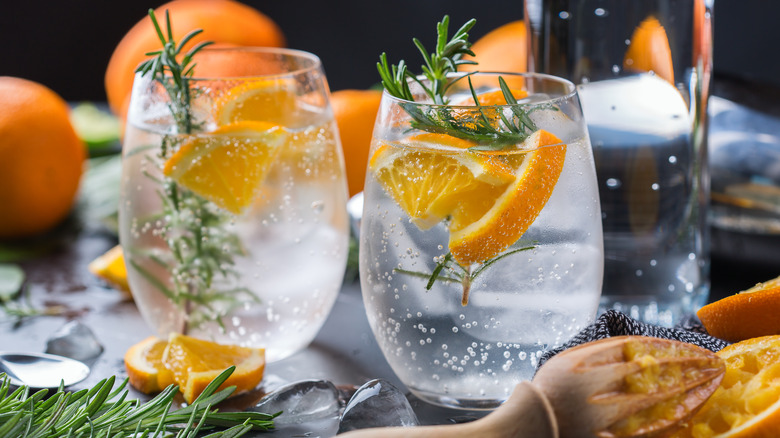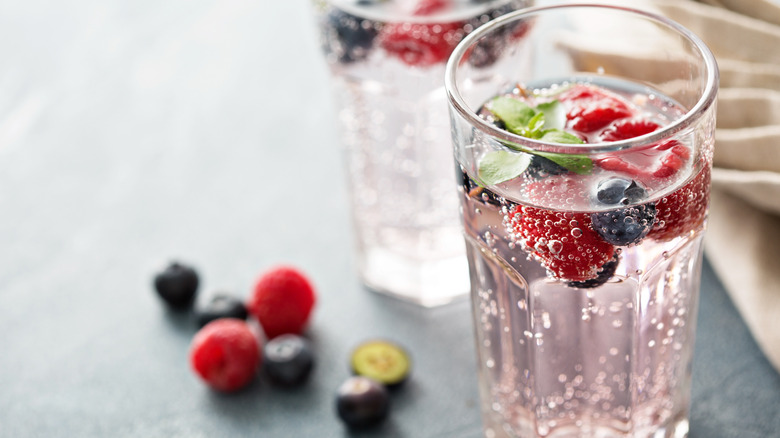The Difference Between Seltzer And Club Soda
We may have moved onto fancier drinks now, but back in the college days, cheap drinks couldn't be beaten. Whether your go-to was a vodka soda, a tequila soda, or a White Claw, these drinks were an inexpensive way to have a fun night out. Yet as classic as they are, they haven't all been around forever. Club soda has existed for a long time, as it was first created in Ireland way back in 1877. However, hard seltzers have dramatically increased in popularity over just the past few years.
While it has existed since 2013, the White Claw boom happened as recently as 2018. Between 2018 and 2019, White Claw's sales quadrupled, according to Bloomberg. Between the versatility of club soda and the popularity of seltzer, it's fair to say these are some of the most popular mixers for alcoholic beverages. But when you crack open a can of White Claw, what are you actually drinking? Seltzers are light, refreshing, and seemingly simple drinks, just like cocktails made with club soda. So what's the difference?
Club soda has added minerals
Club soda and seltzer are just different forms of water, which explains why they have little to no taste on their own. They're also both carbonated, so you can count on your drink being fizzy. But in both cases, the waters aren't naturally carbonated and it needs to be artificially added. To get their signature bubbles, water gets pressurized with carbon dioxide gas. The main difference between club soda and seltzer lies in the drinks' ingredients.
While a White Claw may sound like the more complex of the two, that's because the hard seltzer drinks have alcohol, cane sugar, natural flavor, and citric acid in addition to carbonated water. On its own, seltzer is simply carbonated water with no added ingredients. That's typically why seltzer is combined with other ingredients in drinks — by itself, it's essentially just tasteless fizzy water.
On the other hand, club soda generally has sodium salts or potassium salts added to it, such as table salt and baking soda. Besides creating finer bubbles, these additives give club soda a more mineral taste, which is closer to the flavor of naturally occurring spring water. Some even say that club soda tastes a little salty. So if you're looking for a drink that tastes just like natural spring water, give club soda a go. But if you just want some water with bubbles, seltzer should get the job done.

